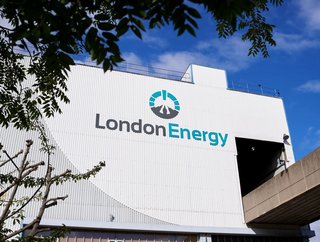ABB London extends life of LondonEnergy's plant

ABB has delivered a life extension and expansion project for LondonEnergy’s energy-from-waste (EfW) facility that will ensure continued production of sustainable energy and processing of waste for 1.9 million people in seven London boroughs. The upgrade has enabled LondonEnergy to improve the plant’s resilience and enable the connection of an additional steam turbine, which will increase annual green energy production to 1,000 megawatt-hours (MWh), equivalent to the electricity consumption of 80,000 homes and businesses.
“By upgrading our existing EfW plant, we have renewed confidence in our ability to keep waste out of landfill and minimise our carbon footprint. The new system allows us to monitor, control and automate the entire EfW plant’s electrical assets from one touch-screen user interface,” said Charles Bell, LondonEnergy’s E&I Manager.
An important feature of the project is the ABB Ability™ Electrification Monitoring and Control ZEE600, one of the first to be deployed in the UK. It acts as a hub to integrate data from five generators, as well as power distribution systems, grid connection, and drives and motors in waste-handling units. Operators interact with the system via a touch-screen interface that gives visibility and control, as well as access to alerts and historic performance data.
ABB supplied a total of 63 panels of UniGear ZS1 11 (kV) double busbar and 3.3 kV single busbar electrical switchgear to protect service continuity and provide redundant power capability. VD4G generator circuit breakers (GCBs) were selected to meet the most stringent requirements for generator applications. Their fault-handling capability was established by a power study that enabled the team to replicate the installation’s original electrical parameters. On top of offering comprehensive generator protection, ABB’s advanced Relion® REX640 relays are also able to automatically perform generator breaker synchronization, a crucial task for safe connection to the grid.
The project required upgrading of four original generators and interfacing them with a modern digital control system, as well as adding a new generator. To achieve this, ABB’s global experts in power studies and consulting delivered in-depth modelling and analysis, before developing a scheme that seamlessly combines the existing and new technologies. ABB also delivered training to help LondonEnergy’s operators transition to the latest control technology.
“Extending the life of an existing facility can have huge sustainability benefits by avoiding or delaying construction of a new site. When it was built 50 years ago, the original engineers could never have foreseen that we would integrate their generators into a modern digital control system,” said Stephen Gibbs, ABB’s UK Product Marketing Director for Distribution Solutions. “Our extensive research, modelling and simulations showed that it is possible to upgrade existing assets and it’s an approach that we can replicate elsewhere.”






